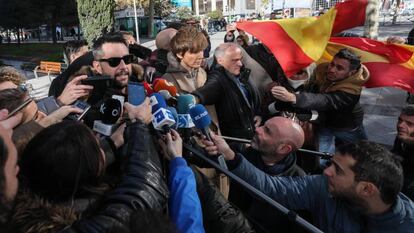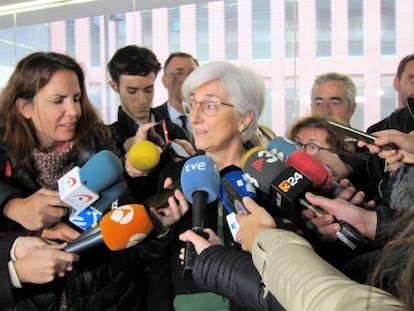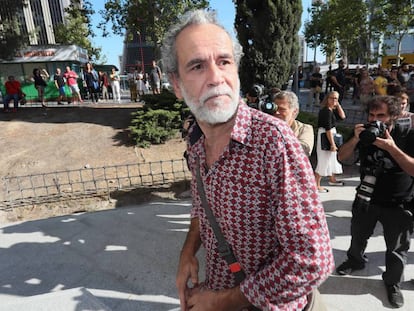In defense of clowns: the Dani Mateo case
A society that takes its comedians to court is losing its own sense of generosity and greatness

On Monday, the Spanish comedian Dani Mateo appeared before a judge who is investigating whether he committed the crime of publicly offending Spanish symbols, as well as a second count of hate crimes. The investigation is based on a complaint filed by a National Police union called Alternativa Sindical de la Policía over a television sketch that was part of a comedy show on La Sexta.
A comedian who offends someone is not a criminal who must answer to the courts, but to his audience
Respect for the justice system’s decisions means that silence must be kept over the fact that the judge accepted the complaint and summoned Mateo to a hearing. But when it comes to the complaint itself, filed by a police organization citing the defense of citizens’ rights and freedoms, it is necessary to underscore that theirs is a private initiative, not an automatic application of the law. And as a private initiative, rather than protecting citizens’ rights and freedoms, what it really seeks to do is to define them, and in this way to award itself the job of limiting those very same rights and freedoms.
The complaint talks about the symbols of Spain, demanding respect for them in the name of “democratic society.” But it is precisely because this is a democratic society that nobody, least of all a police organization, should invoke democratic principles to report a comedian, or to demand from him a type of respect that is easily confused with an invitation to self-censorship.
Nobody, least of all a police organization, should invoke democratic principles to report a comedian
Contrary to what is often said, cases like this one do not force us to ask ourselves about the limits of freedom of expression, but rather about the justifications sought by intolerance to try individuals who cannot truly offend even when they are trying to. A comedian who offends someone is not a criminal who must answer to the courts, but a bad comedian who must answer to his critics and his audience.
A society that takes its comedians to court – or its clowns, as Dani Mateo himself has put it – is not a society that defends its values more energetically, but a society that is losing its own sense of generosity and greatness. It’s not that society does not deserve comedians like Dani Mateo, regardless of whether they are good or bad; what society does not deserve is champions like the ones who filed this complaint.
While society awaits a decision by the justice system, our democratic rights and freedoms make it an obligation to stand by the clowns.
English version by Susana Urra.
Tu suscripción se está usando en otro dispositivo
¿Quieres añadir otro usuario a tu suscripción?
Si continúas leyendo en este dispositivo, no se podrá leer en el otro.
FlechaTu suscripción se está usando en otro dispositivo y solo puedes acceder a EL PAÍS desde un dispositivo a la vez.
Si quieres compartir tu cuenta, cambia tu suscripción a la modalidad Premium, así podrás añadir otro usuario. Cada uno accederá con su propia cuenta de email, lo que os permitirá personalizar vuestra experiencia en EL PAÍS.
En el caso de no saber quién está usando tu cuenta, te recomendamos cambiar tu contraseña aquí.
Si decides continuar compartiendo tu cuenta, este mensaje se mostrará en tu dispositivo y en el de la otra persona que está usando tu cuenta de forma indefinida, afectando a tu experiencia de lectura. Puedes consultar aquí los términos y condiciones de la suscripción digital.










































